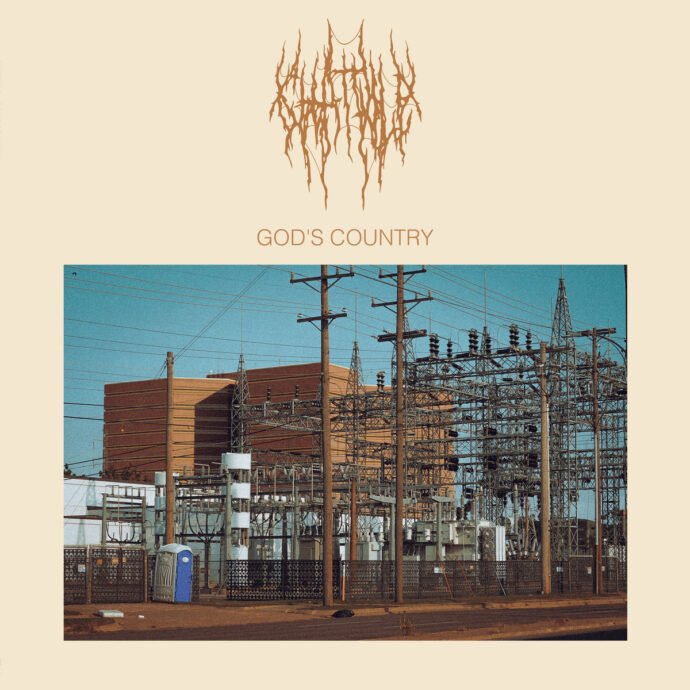Of all the sludge-metal acts working in the present tense, Oklahoma City’s Chat Pile is making an easy case for its position in the genre’s top tier. More so than on their previous singles and EPs, the band’s debut studio release, God’s Country, is a testament to the group’s namesake, as its sonic landscape is effectively a heap of seemingly disparate influences from across the spectrum of hard rock. On the other hand, the lyrics provided by frontman Raygun Busch touch upon many aspects of what he very clearly sees as the industrial hellscape that is the United States of America.
Nowhere on the record does this sentiment show up more vividly than on one of its lead singles, “Why.” Busch’s spoken word over distorted bass and drums spouts disbelief at the phenomenon of homelessness; asking simply “Why do people have to live outside?” He repeats the question in an aggressive growl for the chorus, as the instrumentation increases in intensity and wailing sour guitar tones enter the mix.
A similarly minimalist composition (in terms of repetition, rather than sound) shows up on the album’s opener, “Slaughterhouse.” Solo drum beats usher the listener into the record, which is kicked off by Busch bloodcurdlingly shrieking the refrain, “hammers and grease.” Conceptually, the track describes animals in a slaughterhouse with riveting specificity, and undoubtedly ventures to utilize it as a metaphor for the American working class.
This track strikes an interesting contrast with the rest of the record, for it speaks almost like an omnipresent narrator assessing the state of affairs, while the rest of the songs come from the perspective of someone in the throes of said predicament. “The Mask,” for example, lets listeners into the mind of Roger Dale Stafford (or at least a character based on him), who held up a restaurant in 1978 and murdered six employees. Despite the contemptibility of the individual on display, the track is able to convey the hopelessly broken condition of his mind via an increasingly jittering instrumental alternating between rhythmic chugging and melodic breakdowns.
“Pamela” and “grimace_smoking_weed.jpeg” are another two cuts on the record that lend their subject matter to popular culture. The former track is told from the perspective of Pamela Vorhees and allows another insight into the inner workings of a homicidal mind. At first, she speaks through Busch’s voice, telling the listener about how she stares at the lake resignedly, waiting to die, before she decides to seek revenge and resurrect her son. To mirror this progression, the song begins with a dejected reverb-laced passage with an obvious shoegaze flair, then switches to a lower octave and higher distortion, reflecting the break in her psyche.
The record closing “grimace” is a more impressionistic tale of a depressive individual who is plagued by recurring hallucinations of Grimace in his room. Judging by the lyrics, the track documents a substantial period of the narrator’s life and follows him through drug addiction and attempted suicide, all under the gaze of the “purple man.” Passages of the song are indebted to straightforward sludge-metal, while others resemble stoner-metal and post-rock. Interestingly, the track declines in tempo as it progresses through its nine-minute runtime (compared to its six-minute demo version), but it does maintain a steady increase in volume and distortion until the album’s close, with Busch screaming incoherently over the remnants of dissonant distortion.
In full, reading into the messaging of God’s Country is almost akin to reading a work of cultural criticism. It presents the same kind of apt and straightforward critiques of modern-day consumerist society and semi-obscure pop-culture references one would expect to find in a Slavoj Zizek book, albeit wrapped in a considerably different package. Chat Pile is able to sonically walk a perfect line between the esoteric and accessible, and in the process created an album that simultaneously challenges many preconceptions of heavy music, while also providing a promising entry point for the uninitiated.
Rating: 8.4/10

